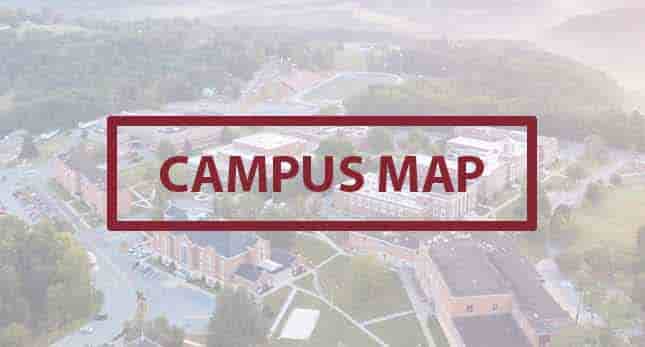Concord University is developing a Physician Assistant (PA) Program that plans to matriculate its first cohort of 24 students in August 2025. The program will provide 115 credits over 28 months (7 semesters) and is being designed to prepare students for entry into practice as a PA. After completing the CU PA Program, students receive a Master of Physician Assistant Studies. Consistent with the University’s mission, the program will focus on training students to meet the healthcare needs of rural and underserved populations and to be committed to community service. The program will train students to work in a variety of healthcare settings, with an emphasis on rural primary care, public health, and leadership. All PA courses will be offered on Concord’s main campus. The Physician Assistant Program will offer two elective tracks that consist of a two-hour elective course in each didactic semester, starting in the second semester. Students choose during their first semester which elective track they would like to pursue. You can find more information on the specific courses in each elective track in the section on Curriculum. The two elective tracks are: *See Accreditation The mission of the Concord University Physician Assistant Program is to train physician assistants who provide exceptional patient-centered care as part of a collaborative team and who are committed to promoting health and wellness through preventative care and patient education, improving access to healthcare through service to rural and underserved populations, and becoming leaders in their practices and communities. The vision of the Concord University Physician Assistant Program is to graduate Physician Assistants who become leaders in the profession, consistently serve rural and underserved populations and are committed to community service. Goal 1 – To recruit applicants with a history of strong academic performance. Indicators of Success in Meeting Goal Goal 2 – To foster a team approach to patient-centered care through interprofessional education. Indicators of Success in Meeting Goal Goal 3 – To provide a curriculum and learning environment that enables student success in completing the program, attaining the program competencies necessary for entry-level PA practice, and passing the PANCE. Indicators of Success in Meeting Goal Goal 4 – To provide opportunities for community service that will promote a lifelong engagement in civic activities, improving access to care for rural and underserved populations and promoting patient education. Indicators of Success in Meeting Goal Goal 5 – To promote an educational and professional environment that demonstrates respect, consideration, and appreciation for all cultures, backgrounds, and beliefs. Indicators of Success in Meeting Goal Knowledge for Practice. Demonstrate knowledge about established and evolving biomedical and clinical sciences and the application of this knowledge to patient care. Interpersonal and Communication Skills. Demonstrate interpersonal and communication skills that result in the effective exchange of information and collaboration with patients, their families and health professionals. Patient Care. Provide person-centered care that includes patient- and setting-specific assessment, evaluation, and management, along with providing healthcare that is evidence-based, supports patient safety, and advances health equity. Interprofessional Collaboration. Engage in an interprofessional team in a manner that optimizes safe, effective patient- and population-centered care. Practice-Based Learning and Quality Improvement. Evaluate one’s care of patients, to appraise and assimilate scientific evidence, and to continuously improve patient care based on constant self-evaluation and life-long learning. Professionalism and Personal Development. Commit to practicing medicine in ethically and legally appropriate ways and exhibit professional maturity and accountability for delivering safe and quality care to patients and populations. Once students demonstrate program competencies and are ready to enter clinical practice, they can be entrusted with the following professional activities. Entrustable Professional Activities (EPA) The ARC-PA has granted Accreditation-Provisional status to the Concord University Physician Assistant Program sponsored by Concord University. Accreditation-Provisional is an accreditation status granted when the plans and resource allocation, if fully implemented as planned, of a proposed program that has not yet enrolled students appear to demonstrate the program’s ability to meet the ARC-PA Standards or when a program holding Accreditation-Provisional status appears to demonstrate continued progress in complying with the Standards as it prepares for the graduation of the first class (cohort) of students. Accreditation-Provisional does not ensure any subsequent accreditation status. It is limited to no more than five years from matriculation of the first class. The Concord University PA Program has two pathways for entry: Traditional and Fast Track. The traditional pathway is for students who hold at least a bachelor’s degree. The fast track pathway is for Concord University students who have completed the program requirements. Students accepted into the fast track pathway can earn a bachelor’s degree in their discipline after the first year of the PA Program and a master’s degree upon completion of the PA program. Learn more about the admission criteria for each pathway below. Please note: The program does not grant advanced placement. All students who matriculate into Concord University’s PA program must complete all program requirements. The application for the August 2026 (2025-2026 cycle) cohort is now open. For any inquiries regarding the application process, please email pa@concord.edu. Please review the requirements below as there have been some minor updates since the last cycle. Students interested in the traditional pathway must apply through the Centralized Application Service for Physician Assistants (CASPA) and must meet general admission requirements to be considered for admission. Admission requirements include: Students may apply for admission into the program prior to completing all the prerequisite courses. However, applicants must have a feasible plan to complete all required coursework prior to matriculation as all admission requirements must be completed prior to matriculation into the program. *The CU PA program utilizes the CASPA-calculated GPA for consideration of eligibility into the program. CASPA standardizes grades across all institutions and, therefore, there may be a discrepancy between your institution’s calculated GPA and the CASPA calculated GPA. Prerequisite Notes: Additional Information: Concord Alumni can apply through Concord University’s graduate application, which has no associated fee. Current students are eligible for the fast-track pathway if they have completed, or will complete, a minimum of 36 credit hours, 16 of the last 32 credit hours, and a minimum of 9 credit hours of upper-level prerequisite coursework at Concord University. The College of Science, Mathematics and Health offers three 3+1 program majors in Biology, Chemistry and Health Science, which can be found here. These programs are designed to ensure students become eligible for the fast-track pathway. Participation in this pathway does not guarantee admission into the program. To be considered for admission, students must apply using Concord University’s application portal for graduate students, which has no associated fee. Admission criteria include: Students may apply for admission into the program prior to completing all the prerequisite courses. However, applicants must have a feasible plan to complete all required coursework prior to matriculation as all admission requirements must be completed prior to matriculation into the program. Prerequisite Notes: Additional Information: Acceptance into any PA program is a highly competitive process. Concord University will select up to 24 applicants to matriculate into each cohort. Meeting our admission requirements for either pathway does not guarantee acceptance. * The application evaluation process is the same for fast track and traditional applicants. However, fast track students will be eligible for an interview with a lower application score. We recognize that fast track students may not have as many hours of healthcare experience for their application. Please note, however, that a fast track applicant is unlikely to qualify for an interview if they do not have any healthcare experience. Applicants who have completed coursework and/or have obtained a degree from an educational institution outside of the United States are required to have their educational credentials evaluated by any National Association of Credential Evaluation Services (NACES) accredited services such as World Education Services (WES) or Education Credential Evaluators (ECE). Evaluation reports should be sent directly from the credentialing service to the CU PA Program. No advanced placement and exemption from application requirements will be granted to international medical graduates. All applicants for whom English is a second language must submit a copy of the Test of English as a Foreign Language (TOEFL) with a minimum score of 85 for the internet based test (iBT). Traditional applicants offered a seat in the program are required to pay a $1000 non-refundable deposit within two weeks of notification of acceptance to secure their seat in the class. Fast track applicants offered a seat in the program are required to pay a $500 non-refundable deposit within two weeks of notification of acceptance to secure their seat in the class. Traditional applicants offered a seat after June 1 are required to pay a $1000 deposit within 5 working days of notification of acceptance in order to hold their seat. Offers made after July 1 require the $1000 deposit to be made within three days of notification. Fast track applicants offered a seat after June 1 are required to pay a $500 deposit within 5 working days of notification of acceptance in order to hold their seat. Offers made after July 1 require the $500 deposit to be made within three days of notification. The acceptance letter will give the specific due date for the deposit. Failure to pay the deposit by the due date will result in forfeiting their seat. All deposit money will be applied toward the cost of tuition for the first semester of the program. Once accepted into the program and the deposit made, students must submit the following documentation prior to matriculation into the program. Acceptance letters will detail the required documentation and specify the due dates for submitting documentation. See the Student Handbook for additional information. The estimated total cost of tuition and fees for the 7-semester program are listed below. Tuition and fees are based on the 2025-2026 academic year. *Cost for books not available on the online database. For Cost of Attendance, please visit https://www.concord.edu/financial-aid/cost-of-attendance The Master of Physician Assistant Studies program at Concord University is a rigorous program that has distinct requirements and places exceptional demands on students. To be successful in the program and in the practice of medicine, it is essential for individuals to possess the knowledge, skills, and competencies required to function in a variety of clinical settings. Candidates for admission and students in the program must possess aptitude, ability and skills in the following categories: Physician Assistant (PA) students must possess sufficient sensory (visual, auditory, tactile, and olfactory) abilities to accurately perceive information provided in the educational setting. This includes written and audiovisual materials, images, and laboratory and physical examination findings. Students must be able to accurately observe (using visual, auditory, tactile, and olfactory senses) a patient’s medical condition, at a reasonable distance and close up, noting verbal and nonverbal patient communication, with and without using medical instruments. This includes, but is not limited to, obtaining a history, performing a physical examination, and assessing radiographs, electrocardiograms, sonograms, monitors, and other graphic images. PA students must be able to communicate clearly, in a way that demonstrates sensitivity to patients, their families, and members of the healthcare team. The student must have the ability to receive and process auditory information and speak and write clearly through both written and electronic media and be proficient in English. The student must be able to accurately describe changes in the patient’s demeanor, status, or posture, document a legible and comprehensive patient evaluation, and present the evaluation orally in a focused manner to other healthcare professionals. Students must be able to adjust their communication style and content to the situation and to the patient’s functional, educational, or mental status. PA students must be able to comprehend and recall large amounts of complex information and synthesize data to solve clinical problems. Students must be able to learn through a variety of modalities and demonstrate skills in clinical reasoning, critical thinking, and problem solving. Students must identify findings from patient history, physical exam, and laboratory data and be able to analyze, organize, assimilate, and synthesize the information to make diagnostic and therapeutic decisions, incorporating information from the medical literature. Students must have the ability to manage several tasks or problems simultaneously. Students must be able to identify limitations in their own knowledge, skills, and abilities, and seek assistance when appropriate. PA students must have sufficient motor function to directly perform inspection, auscultation, percussion, palpation, and other diagnostic maneuvers to elicit physical signs and recognize normal versus abnormal findings. Students must be able to provide general patient care and emergency treatment in accordance with currently acceptable medical practices. Students must have the ability to utilize gross and fine motor palpation, touch, vibratory sensation, and temperature sensation in evaluating various body parts. Students must be able to perform basic diagnostic, therapeutic and emergent procedures (e.g., venipuncture, airway management, placement of intravenous catheters, administration of intravenous medicines, maternity care, advanced cardiac life support, suturing and knot tying, pap smear and endocervical culture, arthrocentesis, application of pressure to control bleeding, etc.). A student must have sufficient physical stamina to undergo the rigorous course of didactic and clinical study. This includes long periods of sitting, standing, and moving which are required for classroom, laboratory, and clinical experiences. PA students must demonstrate the five components of emotional intelligence: self-awareness, self-regulation, motivation, empathy, and social skills. Students must possess emotional stability for full utilization of his/her intellectual abilities and the exercise of good judgment. The student must be able to relate to patients, staff, and colleagues with honesty, integrity, empathy, and dedication, and in compliance with ethical and moral principles and state and federal laws governing the medical profession. The student must have sufficient interpersonal skills to control and express emotions judiciously and professionally and be able to work collaboratively and effectively as a small group member as well as a healthcare team member. The student must be able to demonstrate flexibility in the face of uncertainties inherent in the training process and the practice of medicine, tolerate taxing workloads, and function effectively under mentally and emotionally stressful situations. The student must be able to give and accept constructive criticism and appropriately respond through modification of her/his behavior. Students must be able to identify personal biases and recognize multiple points of view, integrating them appropriately into clinical decision-making.Physician Assistant (PA) Program
About Us
PA Program Mission Statement
PA Program Vision
**Combined Human Anatomy and Physiology courses are acceptable if they are completed at the same institution.
PA Program Applicant Evaluation Process
Applicants with Foreign Education or English as a Second Language
Post-Acceptance Requirements
Program Costs
Tuition / Semester
Fees / 1st Semester
Fees / 2nd – 7th Semesters
Total / Program (7 Semesters)
WV Resident
$11,000
$2,000
$900
$84,400
Non-WV Resident
$17,000
$2,000
$900
$126,400
Estimate of Program Required Expenses –
Not Covered in Tuition or Fees
Textbooks*
$1,500
Scrubs/Lab coats
$200
Diagnostic equipment
$500
Professional Memberships (AAPA & WVAPA)
$85
Conference Expenses – Clinical Year
$800
BLS/ACLS
$150
Graduation Fee
$50
TOTAL
$3,285
Refunds
Course Number and Title
Credit Hours
Didactic Curriculum
Semester 1 – Fall 1
PA500 – PA Professional Issues
1
PA501 – Introduction to Interprofessional Practice
1
PA502 – Clinically-Oriented Human Anatomy
4
PA503 – Pathophysiology for Medical Professionals
5
PA504 – Clinical Pharmacology
2
PA505 – History and Physical Examination Skills
2
PA505L – History and Physical Examination Skills Lab
1
Total Credit Hours Semester 1
16
Semester 2 – Spring 1
PA506 – Patient Care and Clinical Reasoning I
1
PA506L – Patient Care and Clinical Reasoning I Lab
1
PA509 – Clinical Medicine I
4
PA512 – Psychiatry and Behavioral Medicine
2
PA513 – Pharmacotherapy I
2
PA516 – Clinical Skills and Diagnostics I
1
PA516L – Clinical Skills and Diagnostics I Lab
1
PA519 – Research Methods and Epidemiology
1
PA520 – Health Promotion and Disease Prevention
2
Elective I**
2
Total Credit Hours Semester 2
17
Semester 3 – Summer 1
PA507 – Patient Care and Clinical Reasoning II
1
PA507L – Patient Care and Clinical Reasoning II Lab
1
PA510 – Clinical Medicine II
4
PA514 – Pharmacotherapy II
2
PA517 – Clinical Skills and Diagnostic II
1
PA517L – Clinical Skills and Diagnostics II Lab
1
PA524 – Women’s Health
2
PA525 – Healthcare Systems and the Business of Medicine
1
PA526 – Social and Cultural Considerations in Medical Practice
1
Elective II**
2
Total Credit Hours Semester 3
16
Semester 4 – Fall 2
PA508 – Patient Care and Clinical Reasoning III
1
PA508L – Patient Care and Clinical Reasoning III Lab
1
PA511 – Clinical Medicine III
4
PA515 – Pharmacotherapy III
2
PA518 – Clinical Skills and Diagnostics III
1
PA518L – Clinical Skills and Diagnostics III Lab
1
PA527 – Emergency and Hospital Medicine
3
PA528 – Surgery
1
Elective III**
2
PA-540 – Preclinical Assessment
1
Total Credit Hours Semester 4
17
Clinical Year Curriculum
Semester 5 – Spring 2
PA-601 – Transition to Professional PA Practice I
1
Semester 6 – Summer 2
PA-602 – Transition to Professional PA Practice II
1
Semester 7 – Fall 3
PA-603 – Transition to Professional PA Practice III
1
PA-630 – Summative Assessment
1
Each clinical rotation is 5-weeks in length and will be varied in sequence for each student. Students are not required to provide or solicit clinical sites or preceptors. After each rotation, students return to campus for an end of rotation examination and for didactic instruction in PA-600, PA-601, and PA-602, in respective semesters.
PA-610 – Family Medicine Rotation
5
PA-611 – Emergency Medicine Rotation
5
PA-612 – Internal Medicine Rotation
5
PA-613 – Surgery Rotation
5
PA-614 – Pediatric Medicine Rotation
5
PA-615 – Women’s Health Rotation
5
PA-616 – Psychiatry and Behavioral Medicine Rotation
5
PA-617 – Elective I Rotation
5
PA-618 – Elective II Rotation
5
Total Credit Hours for PA Program
115
Elective Tracks and Courses
Medical Missions and Population Health
Foundations of Global Health Initiatives
Offered Spring – semester 2
Medical Response to Disaster and Crisis
Offered Summer – semester 3
Managing Health with Limited Resources
Offered Fall – semester 4
Substance Use Disorders
Foundations of Addiction Medicine
Offered Spring – semester 2
Addiction and Co-Occurring Conditions
Offered Summer – semester 3
Complexities of Substance Use Recovery
Offered Fall – semester 4
*During the first semester of the program, students will choose an elective track. Once the elective track has been selected, students will complete all courses in that track.Observation
Communication
Cognitive Function
Motor Function
Behavioral, Emotional, and Social Attributes
Our Faculty and Staff

Linkous, Staci
Assistant Professor of PA Studies / Director of Didactic Education
304-384-5954
Email Me

Pack, Jennifer
Assistant Professor of Health Sciences / Director of Physician Assistant Studies
304-384-6317
Email Me

Semonco, Julia
Assistant Professor of PA Studies & Director of Clinical Education
304-384-6253
Email Me






